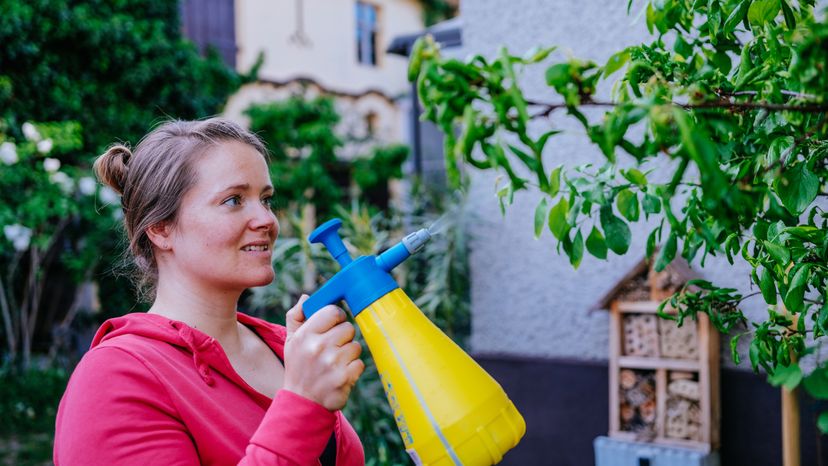
For various reasons, some people prefer to use non-chemical means for controlling diseases, insects, and other pests. Allergic reactions to chemicals, a desire to grow purely organic vegetables, or protection for young children are all reasons to use non-chemical controls for pests. If used correctly, non-chemical pest controls can be very effective in keeping your garden healthy.
VFNT Seeds: The easiest way to avoid disease problems is to choose varieties of vegetables that are resistant to disease. Over the years, many disease-resistant vegetable varieties have been developed. You'll notice that seed packages and catalog descriptions of some vegetable varieties include V, F, N, and T in the name. These abbreviations indicate disease resistance that has been bred into the variety. V and F stand for verticillium and fusarium wilts, which are fungi that cause tomato plants to turn yellow, wilt, and die. N indicates nematodes tolerance. Nematodes are tiny parasitic worms that cause knots on stems and roots of vegetables. Tobacco mosaic virus, indicated by a T, affects foliage by yellowing and curling; it also causes severe root damage.
Advertisement
Water Early: If you irrigate your garden with a sprinkler from overhead, it's best to water early in the day so plants can dry off before night falls. Foliage that stays wet for long periods of time is susceptible to leaf diseases, fungi that grow on leaves, tender stems, and flower buds. This tends to be a problem when plants stay wet throughout the night: Fungi spread quickly during the cool, moist evening hours. The fungi will cause the plant to be weakened, flowers will fall off, and fruit will begin to spot and become soft.
Crop Rotation: Do not grow the same plant family in the same spot year after year. Repetition of the same crop gives diseases a chance to build up strength. Design your plan so that each family of vegetables -- cabbage family, cucumber family, and tomato/pepper family -- can be moved to another block of your garden on a three-year rotation.
Advertisement